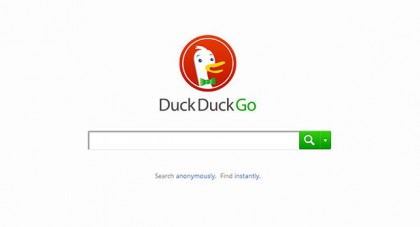Online security: Cover your digital footprint
Your digital foot prints are tracked whether you like it or not
One such add-on we recommend for Firefox users is Self-Destructing Cookies by Ove; in Chrome, use Vanilla Cookie Manager by Christian Zangl.
You should bear in mind that deleting cookies will have the side-effect of making advertising on web sites less relevant to you. The argument here is that if you're going to see ads anyway, wouldn't you prefer to see relevant ones?
Of course, the counter-argument is that you should be running an ad-blocker, anyway. We're in the latter camp.
Also, if you really feel strongly about your data, you should shut down all your social networking accounts — they exist purely to squeeze some dollars out of your info, after all.
Not willing to sacrifice that just yet? Why not take the anarchist's route and fill in your profile with erroneous data (note that this is a breach of most social networks' terms, so don't tell ol' Zuck).
You should also switch search engines, away from Google or Bing, as they exist to track you and show you ads. Non-tracking alternatives include duckduckgo.com, www.startpage.com, ixquick.com (from the same company as Start Page, but searches using more than just Google's search engine) or enabling the 'AskEraser' on Ask.com.

Paranoia level 3: Become a phantom in the night
If you've shut down all your social networks, run your own email server, have disabled cookies completely, but are still looking for complete anonymity, there's one option worth considering: TOR.
Get daily insight, inspiration and deals in your inbox
Sign up for breaking news, reviews, opinion, top tech deals, and more.
Used by frequenters of the seedier parts of the net and privacy enthusiasts alike, TOR (The Onion Router) bounces your http/other requests through a distributed, anonymising network of servers, making it nigh on impossible to track where the request originated.
Additionally, it encrypts all of your data (up to the exit of the TOR network, so still use https where possible), so that anyone viewing your packets as they skate across the icy surface of secrecy can't actually see what they contain.
The easiest way to use the TOR network is to install the TOR Bundle, which includes a privacy-focused modified version of the Firefox browser. It will automatically connect to TOR when opened, as well as delete all your session data when closed.
You can get this bundle, ready to install to a USB drive, from www.torproject.org/projects/.
If you feel that this is going a bit too far (if you're really interested in privacy, we can't think why), you could alternatively install a VPN like TunnelBear, which will encrypt all your traffic and send it via a server in your country of choice —perfect for accessing country-specific content, like certain American TV shows.
Additionally, this is good practice if you ever use an 'open' Wi-Fi network, like at most cafés, as it prevents people from being able to view your data over the unencrypted connection. There are tales of cars parked near internet cafés with laptops in the boot that do nothing but log all of the data sent through the café's wireless network, to be sifted through later for goodies.

Paranoia level 4: Vanishing completely
Constantly looking over your shoulder through the eye holes in your tinfoil hat?
Have you systematically and successfully deleted every internet account you ever signed up for, including hacking into and destroying the relevant pages in the Internet Archive? Been using TOR for years?
Perhaps the only thing left for you to do is to buy a cave/Earth ship and leave the grid.
Use only wired networks. In fact, go offline completely and only send letters — in code. Don't buy a smartphone and encrypt all of your phone calls. Don't cut your fingernails. Store your own urine. Dream of building an all-wooden aircraft five storeys tall… Escape from the world because someone, somewhere, is watching you.
Password protection
To keep your online data safe from cyber-attacks, we can't stress enough how important it is to have strong, unique passwords, not found in any dictionary, for each site you log into.
Of course, remembering them all is a pain, so use a password manager to keep track of them all.
We use the free, open-source KeyPass, as it has clients for just about every platform (including Windows, Linux, Mac OS X, Android and iOS, as well as plug-ins for Chrome and Firefox) and is about as full-featured as they come, including an automatic strong password generator and support for cloud syncing your password database.